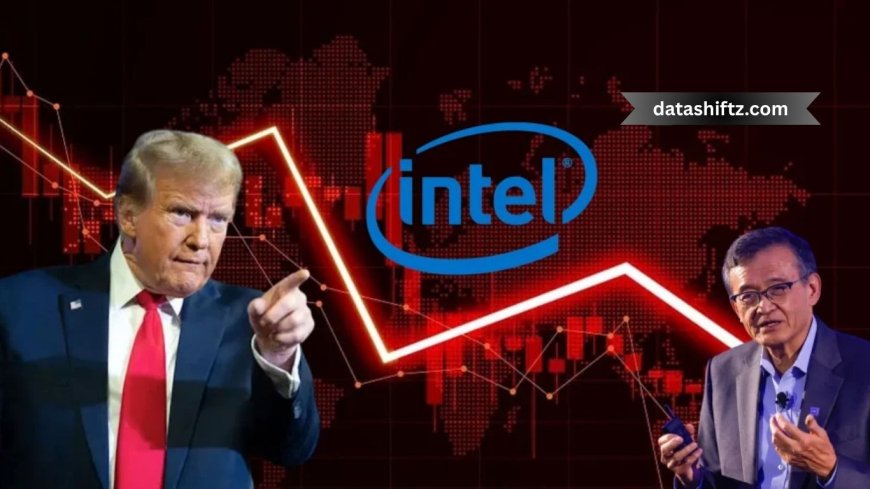Trump Calls for Intel CEO's Resignation: What It Means for Tech, Markets, and Geopolitics

A Sudden Shake-Up: Trump’s Demand Sparks Controversy
Former President Donald Trump stirred significant controversy on August 7, 2025, by publicly demanding the resignation of Intel CEO Lip‑Bu Tan. Citing alleged ties to Chinese military-linked companies, Trump’s call—made via Truth Social—immediately impacted Intel’s stock and set off a firestorm in political and tech circles. This article explores the details, the fallout, and the broader implications for corporate governance and national security.
Market Response & Political Fallout
Trump’s direct and aggressive statement was met with swift market reactions and bipartisan debate.
-
Intel Stock Reacts Sharply:
Intel shares fell between 3–4% shortly after Trump’s post, reflecting investor concern over leadership instability. -
Political Tensions Escalate:
Senator Tom Cotton amplified concerns over Lip‑Bu Tan’s prior investments in Chinese firms allegedly tied to the military, intensifying calls for a leadership review. -
Historical Reference:
Tan was previously CEO of Cadence Design Systems, which recently paid $140 million to settle U.S. allegations of unlawful technology transfers to Chinese defense entities.
Timeline of Events
| Date | Key Event | Impact |
|---|---|---|
| March 18, 2025 | Lip‑Bu Tan appointed Intel CEO | Raised hopes for innovation and strategic recovery. |
| July 2025 | Cadence fined over China-linked export violations | Casts a shadow over Tan’s past executive role. |
| August 7, 2025 | Trump demands Tan’s resignation on social media | Sparks media frenzy and stock volatility. |
Intel’s Leadership Strategy Under Scrutiny
CEO Lip‑Bu Tan has introduced aggressive changes to revitalize Intel’s position in the semiconductor industry:
-
Cut back on automotive chip programs
-
Laid off up to 20% of staff at major fabs
-
Divested the RealSense AI division
-
Refocused company efforts on edge AI and new agentic AI technologies
While some investors applauded his bold approach—Intel stock jumped 14% following his appointment—the Trump controversy adds a new layer of instability to his leadership.
Takeaways from Trump’s Public Intervention
-
Presidential Influence on Markets
Trump’s message, while unofficial, had a real financial impact—showing the power political figures wield over corporations, especially in election seasons. -
Increased National Security Scrutiny
U.S.–China tech tensions have made semiconductor companies targets of deeper background checks and political pressure. -
Transparency Under the Microscope
Investors and watchdogs now expect tech CEOs to disclose foreign ties and affiliations more openly than ever before. -
Leadership Accountability Trend
CEOs are no longer judged solely by shareholders—they face mounting political and public expectations.
Navigating the Road Ahead: Intel’s Next Challenge
Balancing Growth and Security
Intel must juggle its ambition to reassert dominance in AI chips and semiconductors while demonstrating that its leadership is free from potential conflicts of interest. Tan’s ties to China—although indirect—could become a continuing liability if not transparently addressed.
Shareholder Confidence
The leadership team must reassure investors that Intel’s trajectory remains solid despite political headwinds. Quarterly earnings and progress in AI development will be key factors to monitor.
Corporate vs. Political Power
Trump’s move revives debates about the role of political figures in corporate governance. Although no legal authority backs his demand, the influence is undeniable—setting a precedent for future executive pressure campaigns.
Final Thoughts: A Pivotal Moment for Intel and U.S. Tech
Trump’s high-profile call for Intel’s CEO to resign may not lead to immediate changes in the executive suite—but it represents a larger shift in how national security concerns are intersecting with global tech leadership. Intel now faces a critical test of transparency, resilience, and strategic clarity as it navigates one of its most defining chapters.




























